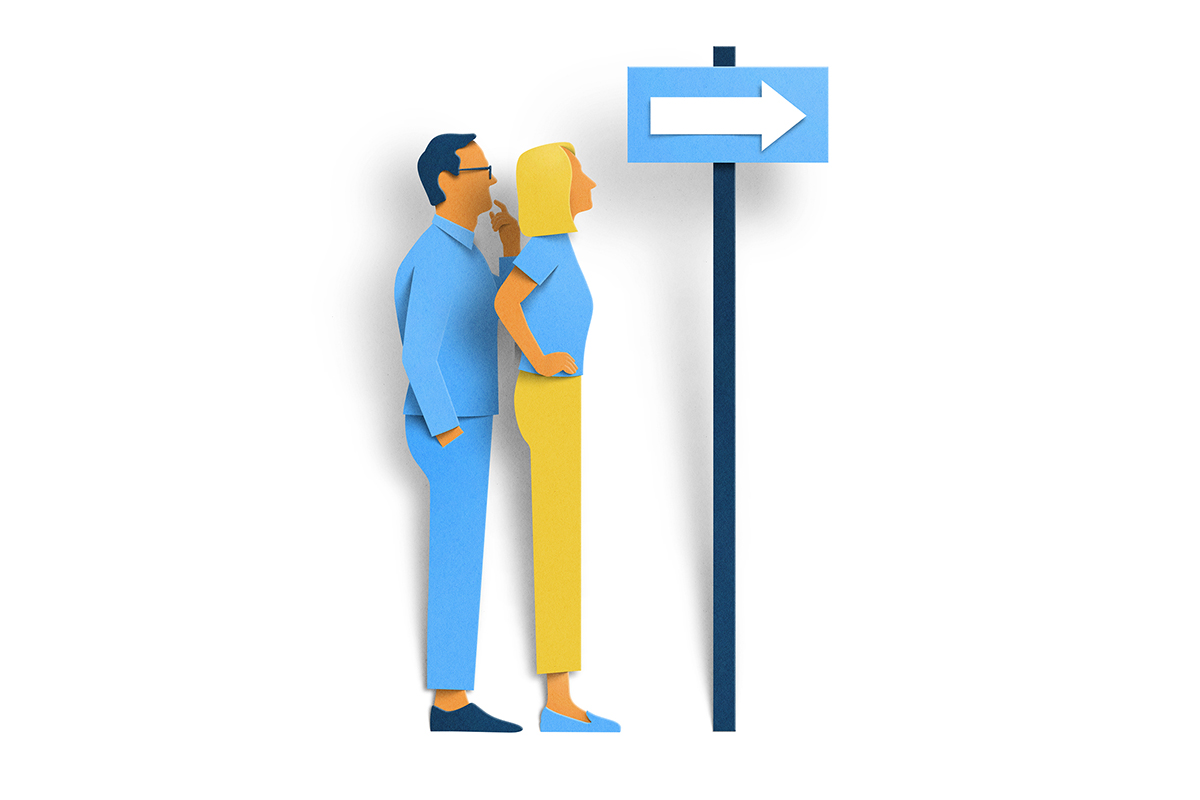The benefits of overpaying your mortgage
September 2024


The benefits of overpaying your mortgage
September 2024
Have some extra cash on hand? Whether you’ve just got a pay rise or received some money as a gift, you might be wondering how to make the most of it. Opening a savings product like an ISA could grow your money, but it’s also worth considering reducing any debts you owe, including your mortgage, as this could help you save funds and free up even more cash for the future.
At Coventry Building Society, our members can overpay their mortgage by up to 10% of their balance each year without incurring any early repayment charges. In this blog, we’ll explore why you might want to consider taking advantage of this option and what benefits an overpayment could bring if you have a standard repayment mortgage.

Becoming mortgage-free sooner
Paying off your mortgage earlier means you’ll have one less financial commitment to worry about. This could be by making a lump sum payment, or by increasing your monthly payments. Once your mortgage is paid off, you’ll have more financial flexibility and leave you with more money each month to spend on doing something you love or to bulk up your savings.
The prospect of being mortgage-free sooner isn’t the only benefit of overpaying your mortgage though – you could also save yourself hundreds or even thousands of pounds in interest. By paying down your mortgage balance faster, you’ll significantly reduce the amount of interest you pay over the life of your mortgage. Even small additional payments each month can lead to substantial savings.
Flexibility and choice
An overpayment on your mortgage will have some immediate benefits too. As you pay down what you’ve borrowed on your mortgage, you increase the equity in your home. By overpaying your mortgage, you will reduce what you owe more quickly than if you made regular payments. As you will own more of the property and need to borrow less, you could get access to a lower Loan to Value (LTV) mortgage when it’s time to remortgage or product transfer. Because you own more of the property, you could find a mortgage with a better rate, meaning you won’t spend as much on interest.
Owning more equity in your property earlier on through life, gives you more property flexibility in the future. So if for example you wanted to renovate your property to accommodate a changed family circumstance, you'd more likely be able to borrow more to fund this than you would if you were looking to top-up the mortgage from a larger outstanding balance.
Lower monthly repayments

If you take this first option and shorten the length of your mortgage, your monthly repayments will stay the same, but you will be able to pay off your balance sooner, and reduce the amount of interest you need to pay
As an alternative, you could opt to lower your monthly repayments by keeping your mortgage term the same length as before your overpayment. Depending on your circumstances and your mortgage, this could mean you pay more interest over time, but it can help to free up some cash that you can use elsewhere each month.
If you’re not going to use a lump sum to overpay your mortgage, your options will be a bit different. For example, if you’ve had a raise or established an extra source of income, you can choose to reduce your mortgage term by committing to higher repayments each month. Alternatively, you could decide to keep your mortgage term and monthly payment the same, and simply setup a regular over payment. By doing this you're able to reduce your mortgage balance more quickly whilst retaining the flexibility to stop the payment in the future if your circumstances were to change.
Consider your options
Overpaying your mortgage can bring a host of benefits, from reducing the amount of interest you pay to increasing your financial flexibility. However, it’s crucial to consider your overall financial situation and goals before making extra payments. If you’re unsure whether you should overpay your mortgage, consider seeking advice from a financial advisor.
In the next article in this series, we'll explore what you need to consider before making an overpayment, such as clearing other debts or taking advantage of high interest savings accounts.
Related articles:

Why staying with us could be a good choice for your next mortgage
Is your current mortgage deal coming to an end? Product transfers are a quick way to transfer to a new rate.
Have some extra cash on hand? Whether you’ve just got a pay rise or received some money as a gift, you might be wondering how to make the most of it. Opening a savings product like an ISA could grow your money, but it’s also worth considering reducing any debts you owe, including your mortgage, as this could help you save funds and free up even more cash for the future.
At Coventry Building Society, our members can overpay their mortgage by up to 10% of their balance each year without incurring any early repayment charges. In this blog, we’ll explore why you might want to consider taking advantage of this option and what benefits an overpayment could bring if you have a standard repayment mortgage.
Becoming mortgage-free sooner
One of the most compelling reasons to overpay your mortgage is the prospect of becoming mortgage-free sooner. The simple act of paying down this debt means you’ll pay off what you’ve borrowed more quickly.
Paying off your mortgage earlier means you’ll have one less financial commitment to worry about. This could be by making a lump sum payment, or by increasing your monthly payments. Once your mortgage is paid off, you’ll have more financial flexibility and leave you with more money each month to spend on doing something you love or to bulk up your savings.
The prospect of being mortgage-free sooner isn’t the only benefit of overpaying your mortgage though – you could also save yourself hundreds or even thousands of pounds in interest. By paying down your mortgage balance faster, you’ll significantly reduce the amount of interest you pay over the life of your mortgage. Even small additional payments each month can lead to substantial savings.

Flexibility and choice
An overpayment on your mortgage will have some immediate benefits too. As you pay down what you’ve borrowed on your mortgage, you increase the equity in your home. By overpaying your mortgage, you will reduce what you owe more quickly than if you made regular payments. As you will own more of the property and need to borrow less, you could get access to a lower Loan to Value (LTV) mortgage when it’s time to remortgage or product transfer. Because you own more of the property, you could find a mortgage with a better rate, meaning you won’t spend as much on interest.
Owning more equity in your property earlier on through life, gives you more property flexibility in the future. So if for example you wanted to renovate your property to accommodate a changed family circumstance, you'd more likely be able to borrow more to fund this than you would if you were looking to top-up the mortgage from a larger outstanding balance.
Lower monthly repayments
If you’re using a lump sum such as a financial gift or inheritance to overpay your mortgage, you can choose to either shorten your mortgage term or lower your monthly repayments.
If you take this first option and shorten the length of your mortgage, your monthly repayments will stay the same, but you will be able to pay off your balance sooner, and reduce the amount of interest you need to pay
As an alternative, you could opt to lower your monthly repayments by keeping your mortgage term the same length as before your overpayment. Depending on your circumstances and your mortgage, this could mean you pay more interest over time, but it can help to free up some cash that you can use elsewhere each month.
If you’re not going to use a lump sum to overpay your mortgage, your options will be a bit different. For example, if you’ve had a raise or established an extra source of income, you can choose to reduce your mortgage term by committing to higher repayments each month. Alternatively, you could decide to keep your mortgage term and monthly payment the same, and simply setup a regular over payment. By doing this you're able to reduce your mortgage balance more quickly whilst retaining the flexibility to stop the payment in the future if your circumstances were to change.
Consider your options
Overpaying your mortgage can bring a host of benefits, from reducing the amount of interest you pay to increasing your financial flexibility. However, it’s crucial to consider your overall financial situation and goals before making extra payments. If you’re unsure whether you should overpay your mortgage, consider seeking advice from a financial advisor.
In the next article in this series, we'll explore what you need to consider before making an overpayment, such as clearing other debts or taking advantage of high interest savings accounts.
Related articles:

Planning ahead for a lower interest rate environment
What do you need to think about when interest rates start to drop?
Related articles:

Why staying with us could be a good choice for your next mortgage
Is your current mortgage deal coming to an end? Product transfers are a quick way to transfer to a new rate.


